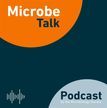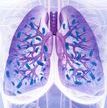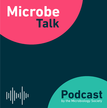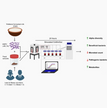- Microbiome ×
-
Microbe Talk - Exploring the gut:brain link in bipolar treatments
July 28, 2025
In this episode of Microbe Talk, Clare talks to An Bui from the Department of Psychiatry at the University of Alberta about their paper published in Microbiology, the first systematic review of the potential effects of psychotropics (the drugs used to treat bipolar disorder) on the gut microbiome of treated and untreated bipolar individuals.
-
Microbe Talk - From workshop to publication: discussing microbiome safety with Lindsay Hall and Aline Metris
June 27, 2025
In January 2024, Aline Metris and Lindsay Hall hosted an academic-industry workshop at the Microbiology Society offices to discuss the potential long-term implications of microbiome perturbations.
Since then, they’ve published a comprehensive summary of the findings from the workshop in Microbial Genomics. We invited them back to the Microbiology Society offices to chat with Clare about their experiences hosting the workshop and share their insights from the paper. -
CFTR Modulators and Microbial Shifts: Writing a Review as an Undergraduate Researcher
May 12, 2025
Joshua Robertson takes us behind the scenes of their latest publication 'The impact of cystic fibrosis transmembrane conductance regulator (CFTR) modulators on the pulmonary microbiota' published in Microbiology.
-
Microbe Talk: a miniseries for Annual Conference
April 7, 2025
Thank you to everyone who attended the Annual Coference 2025 in Liverpool. If the week has left you wanting more, or you were unable to make it this time, don't worry, as we've put together a special miniseries of podcasts featuring speakers from the programme.
-
The microbiology of ageing
January 16, 2025
Staring down the barrel of my 45th birthday and following fresh on the heels of discovering that my hair was no longer blond, but actually grey, I turned to worrying about what I might die of and if there was anything I can do about it. This journey led me to write Live Forever? A curious scientist’s guide to ageing, wellness and death. One of the things that clearly emerged from this was the central role that microbes play in our ageing, especially their interplay with the immune system.
-
Reviving Tradition: Fermented Milk Products as a Source of Gut-Healthy Probiotics for Obesity
December 17, 2024
Dr Muhammad Nadeem Khan takes us behind the scenes of their latest publication 'Dairy-based multi-strain probiotic community successfully mitigated obesity-related gut microbiota dysbiosis in vitro (CoMiniGut)' published in Journal of Medical Microbiology.
-
Microbial Mayhem: the impact of persistent critical illness
November 26, 2024
Emily Tang takes us behind the scenes of their latest publication 'Lower gastrointestinal tract dysbiosis in persistent critical illness: a systematic review' published in Journal of Medical Microbiology.
-
Penguin gut microbiomes are potential indicators of Antarctic ecosystems
October 30, 2024
Dr Wen Chyin Yew takes us behind the scenes of their latest publication 'Seasonal variation in the stomach microbiota of two sympatrically breeding Pygoscelis penguin species at Signy Island, South Orkney Islands' published in Microbiology.







